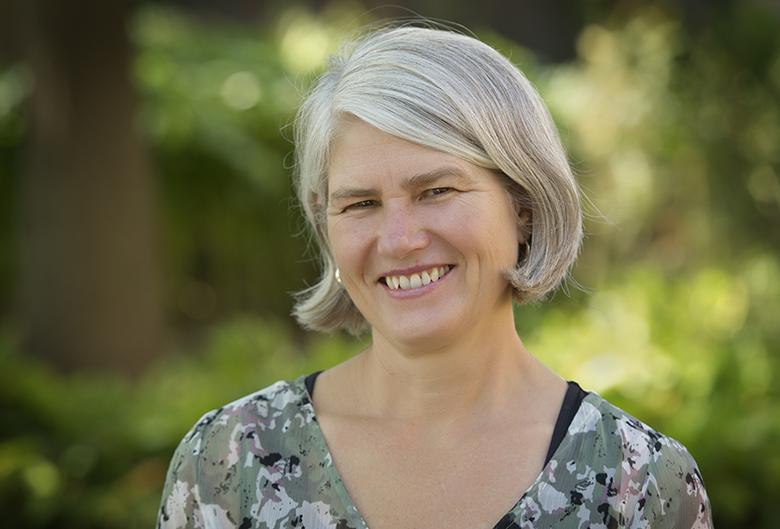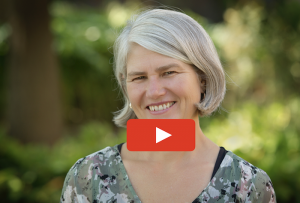Claudia Wagner-Riddle

Find Related People by Keyword
Claudia grew up in Brazil and developed an interest in soil and climate after a frost destroyed many of the coffee plantations in her region. The plantations were replaced with annual crops such as soybeans and corn, and that brought with it a lot of soil erosion. Her first summer job as a student working with a researcher on no-till and cover crops furthered her interest in soil and ways of managing it. The experience also sparked an interest in agriculture. After completing her bachelor’s degree, she took a research position in Germany looking at soil erosion, which inspired her to eventually pursue graduate research. Today, she is a world-renowned environmental science researcher focusing on the mitigation of greenhouse gases emitted by agricultural production systems.
Meet Prof. Claudia Wagner-Riddle
Check out Claudia's 60 second snapshot video here.
Academic History
- B.Sc. Agronomic Engineering, University of Sao Paulo, Brazil (1982)
- M.Sc. Agrometeorology, University of Sao Paulo, Brazil (1986)
- PhD. Atmospheric Sciences, University of Guelph (1992)
Affiliations and Partnerships
- Ontario Soil and Crop Improvement Association
- Grain Farmers of Ontario
- Natural Sciences and Engineering Research Council (NSERC)
- Ontario Ministry of Agriculture, Food and Rural Affairs (OMAFRA)
- Agriculture and Agri-Food Canada
Awards and Honours
- Fellow of the Canadian Society for Agricultural and Forest Meteorology (2018)
Research Impact
Much of Claudia’s research relates to greenhouse gas emissions from agriculture and provides information to farming organizations and government to help them make policy decisions. Claudia’s research identifies which greenhouse gas emissions are associated with certain agricultural practices to determine more environmentally friendly methods. Her research also looks at soil health and its impact on soil ecosystem services such as water quality, water filtration by soils, and all that soil can do to reduce the impact of greenhouse gas emissions.
Current Research Projects
Greenhouse gas emissions from agriculture
Claudia’s research in this area focuses on trying to understand greenhouse gas emissions and how we can better measure them, what we can do to reduce them, how farming practices affect them and what farmers can do to reduce these emissions. Her team has found that freeze-thaw cycles induce large spikes in soil nitrous oxide emissions, a powerful greenhouse gas, and that this source of emissions is under-estimated world-wide. Current work is aimed at unraveling the causes of these spikes in emission and how we can reduce them through better soil management. Funding for this research is provided by the NSERC Discovery Grant program, and OMAFRA-University of Guelph Agreement.
Carbon footprint of dairy and beef farming
Claudia’s research team is quantifying the carbon footprint of milk and beef production and determining how farmers can reduce their environmental impact through practices that increase efficiency and profit. Funding for this research is provided by the OMAFRA-U of Guelph Agreement.
Soil health and its impact on soil ecosystem services
Claudia is leading a multi-disciplinary research project to determine how diverse and non-diverse crop rotations, including the use of cover crops, impact soil health and soil ecosystem services. Her team is looking at multiple benefits that could be derived from soil, such as water quality, soil carbon storage and diversity. This research utilizes state-of-the-art soil lysimeters, micrometeorological techniques and long-term plot studies. Funding for this research is provided by the NSERC Strategic Grants program, Grain Farmers of Ontario, OMAFRA-U of Guelph Agreement, and OMAFRA New Directions program.
Graduate Student Information
The first thing Claudia works with new graduate students on is developing a plan for their training. She likes to discuss their career goals, background, weaknesses and what areas they would like to improve. Based on this discussion, she develops a plan with the student for which courses they will take and how their research will be structured. Claudia also holds weekly group meetings with all of her graduate students where they discuss progress. They also use this time to discuss papers, and hold practice sessions in preparation for research presentations at upcoming conferences. This is an opportunity for students to interact and hear feedback from Claudia and each other while also fostering a sense of team spirit.
Featured publications
- Brown, S.E., S. Sargent, and C. Wagner-Riddle. 2018. Evaluation of a lower-powered analyzer and sampling system for eddy-covariance measurements of nitrous oxide fluxes. Atmospheric Measurement Techniques 11: 1583-1597.
- Jarecki, M., B. Grant, W. Smith, B. Deen, C. Drury, A. VanderZaag, B. Qian, J. Yang, and C. Wagner-Riddle. 2018. Long-Term Trends in Corn Yields and Soil Carbon under Diversified Crop Rotations. Journal of Environmental Quality 47: 635-643.
- Congreves, K.A., C. Wagner-Riddle, B.C. Si, and T.J. Clough. 2018. Nitrous oxide emissions and biogeochemical responses to soil freezing-thawing and drying-wetting. Soil Biology and Biochemistry 117: 5-15.
- Wagner-Riddle C, Congreves K A, Abalos D, Berg A A, Brown S E, Ambadan J T, Gao X, Tenuta M. 2017. Globally important nitrous oxide emissions from croplands induced by freeze–thaw cycles. Nature Geoscience. 10: 279-283.
- Eichelmann, E., C.Wagner-Riddle, J. Warland, B. Deen, and P. Voroney. 2016. Comparison of Carbon Budget, Evapotranspiration, and Albedo Effect between the Biofuel Crops Switchgrass and Corn. 2016. Agric. Ecosyst. Env. 231:271–282
For a full list of Claudia’s publications, please visit her Research Gate page.
